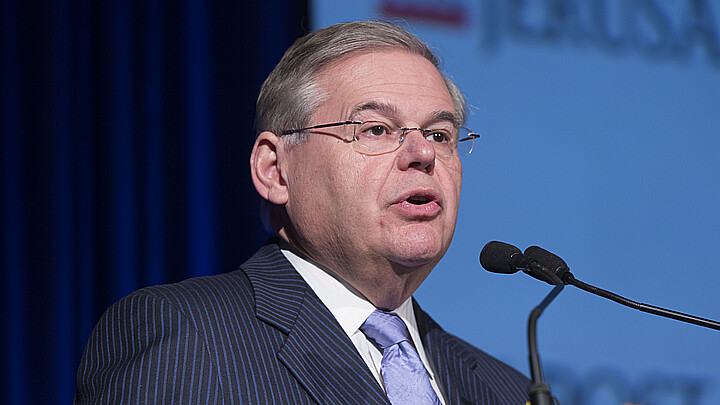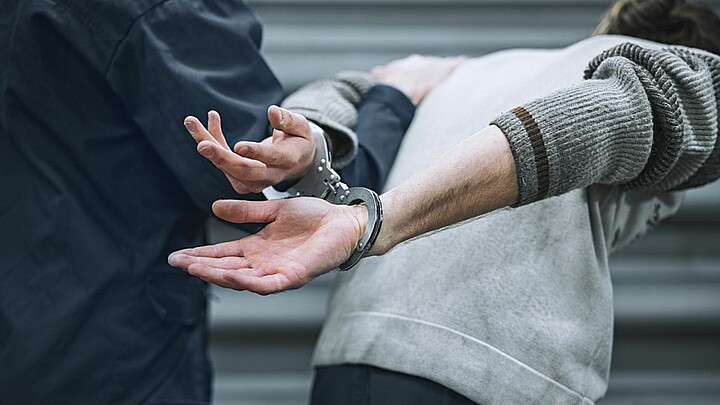Crime
DOJ crime-reduction grantees tied to Soros, anti-police changes linked to urban crime surge
Grantee urges "seismic shift in power away from police, police unions, and the justice system towards a transformative investment in community-led safety and health solutions."
January 24, 2022 10:23pm
Updated: January 25, 2022 5:30pm
The Department of Justice has awarded crime-reduction grants to some groups that back the same anti-police, soft-on-crime policies implemented by George Soros-funded district attorneys that critics argue have unleashed a surge in urban crime.
Those policies — including the defunding or restructuring of police departments, bail reform, less incarceration, decriminalizing and deprioritizing a broad range of criminal offenses — have been linked to skyrocketing criminal violence in many Democrat-led cities, including Los Angeles, San Francisco, Philadelphia, Chicago and New York City.
The DOJ's Bureau of Justice Assistance has awarded the grants to organizations and municipalities to "reduce serious and violent crime" and "make neighborhoods safer" under its 2021 Byrne Criminal Justice Innovation Program. Some of those grantees, Just The News found, have ties to district attorneys and groups funded by progressive megadonor Soros.
In Los Angeles, for instance, the Urban Peace Institute (UPI) received $1 million for its South Los Angeles Peacemakers program to make the city safer. The UPI has called for the "radical restructuring" of American policing, including shifting power from police to community "peacemakers." The nonprofit was instrumental in progressive Los Angeles DA George Gascon's criminal justice changes in the city, according to a report.
"In December 2020, newly-elected Los Angeles District Attorney George Gascon unveiled sweeping changes to the criminal justice system in Los Angeles County," the California Wellness Foundation reported. "These groundbreaking changes were a direct result of decades of tireless advocacy, education, awareness-raising and research by activists, grassroots organizations and community members in Los Angeles County. Among these grassroots groups were the Urban Peace Institute (UPI), a grantee in our Community Well-Being portfolio, which has championed community-led solutions to public safety, justice and public health for over 17 years.”
Amid the anti-police protests and rioting roiling Democrat-led cities following the May 2020 death of George Floyd, UPI urged radical overhaul of law enforcement and the criminal justice system. "Change is only going to come from a seismic shift in power away from police, police unions, and the justice system towards a transformative investment in community-led safety and health solutions," UPI proclaimed on its website. "American policing needs radical restructuring. Public safety should be redefined by communities that experience over-policing and violence."
In Reimagining Public Safety, a list of recommendations posted on its site, UPI outlines five broad objectives: end over-policing of communities of color, end police violence and brutality, reimagine policing for public trust, invest in community-based alternatives to public safety, and ensure community-led police accountability. Focused far more on restricting law enforcement than on curbing crime, the nonprofit's specific proposals include the following:
- End and divest funding from law enforcement practices that support systemic racism, use of force, and warrior style policing;
- End stop and frisk practices;
- End racial and gang profiling;
- End use of gang databases and injunctions;
- End police in schools;
- End police collaboration with Immigration and Customs Enforcement (ICE);
- Decriminalize and deprioritize enforcement of minor crimes;
- End use of adversarial policing and aggressive suppression tactics;
- Transform use of force policies;
- Require police departments to bear the cost of misconduct; settlements should be paid out of police budgets;
- Transform policing approach from warrior-style to guardian-style policing;
- Divest funding from law enforcement practices that support systemic racism, use of force, and warrior style policing to fund alternative community-based public safety strategies;
- Build a comprehensive community-based public safety infrastructure focused on non-law enforcement approaches to neighborhood health and safety;
- Review public safety budgets at the state, county, and city level to reprioritize funding to improve community health and safety; redistribute public safety funding responsibilities between city, county, and state;
- End the use of police in schools and divest funding to support school mental health counselors, gang intervention and outreach workers, nurses, psychologists, social workers, and public health workers;
- Create police commission and civilian complaints offices including community oversight with subpoena power;
- Invest in community leadership training to ensure police accountability is driven by communities of color most impacted by over policing;
- Ensure expedient officer discipline and prosecution without pay when under investigation of an alleged crime or improper use of force;
- Assign independent prosecutors for use of force cases;
- Establish policies that allow individuals to review police video and audio footage of their interaction with police without a court order;
- End the application of qualified immunity doctrine to police accused of use of excessive and/or deadly force;
- Require policing data publication for arrests, diversion, officer-involved shootings with disaggregation by race, age, and zip code;
- End police union interference in the oversight and crafting of police accountability;
- State legislatures must separate negotiation of contracts on police wages and benefits from law enforcement disciplinary procedures;
- Revise state “Officer Bill of Rights” to ensure it does not interfere with officer accountability.
UPI's cofounder, Connie Rice, also cofounded the Advancement Project, a left-wing activist organization opposing voter ID that has received millions from Soros.
UPI's Executive Director Fernando Rejon said the organization believes in a community-driven force to address violence. "It's not necessarily as much shifting power from police" rather to a "community-based infrastructure" that focuses on gang-related violence,” he said. The shift from police, he said, is not "directed toward reducing crime but bringing down the violence."
According to Rejon, the root causes of violence must be addressed. UPI lists 10 root causes on its website, where it cited an evaluation on the success of its peacekeepers program.
Bail reform and other criminal justice reforms including decriminalizing and deprioritizing prosecution of low-level crimes are a major factor in the surge in criminal activity, according to many in law enforcement. Los Angeles has seen a rash of smash-and-go robberies, and fourteen suspects in December were promptly released on zero bail, sparking controversy and calls for an end to no-bail policy by LAPD Chief Michael Moore and even progressive Mayor Eric Garcetti.
In a shocking recent case, UCLA graduate student Brianna Kupfer was allegedly murdered by Shawn Laval Smith, who had a lengthy criminal history. Smith was released on a misdemeanor charge in October, 2020, Fox News reported. A law enforcement source told the news outlet Smith was recently jailed in San Mateo after assaulting an officer and had an active warrant in that case.
Los Angeles’ homicide rate rose 12 percent in 2021 over 2020.
The DOJ also awarded $1 million to the city of Oakland, Calif., to reduce crime in that city, and the award documents show the Urban Institute as one of its partners in that program.
Another taxpayer-funded award of $1 million was given to the Center for Court Innovation (CCI), previously the Fund for the City of New York, to increase safety in the Bronx by empowering "public safety, violence prevention, youth services, community organizing, urban planning and public health strategies ..."
CCI stated in the award documents it will also use the funds to address the "deep-rooted and generational issues of community violence ..."
"We design and implement bail reform strategies to reduce the use of jail and increase the fairness of the justice system," CCI declares in its Rethinking Incarceration policy.
New York, like Los Angeles, has seen a significant rise in violent crime. In one recent case, Michelle Go, 40, was pushed onto the train tracks in Times Square by a deranged man.
Another case involved 19-year-old Kristal Bayron-Nieves, who was gunned down while working at a Burger King. The suspected murderer, Winston Glynn, has an extensive rap sheet and was released on his own recognizance after a November arrest, as the misdemeanor charge was "bail eligible," the New York Post reported.
CCI's Manhattan Justice program wants a more fair criminal justice system and believes that transformation is needed in response to criminal activity. The program "helps build a more effective and restorative justice system by providing comprehensive services as alternatives to traditional responses to crime," according to the organization.
Manhattan DA Alvin Bragg's office is a partner in the Manhattan Justice program. Bragg appointed Sherene Crawford as his executive assistant DA. Crawford was a leader at the Center for Court Innovation. CCI has also been funded by Soros.
The DOJ did not respond to a request for comment.










